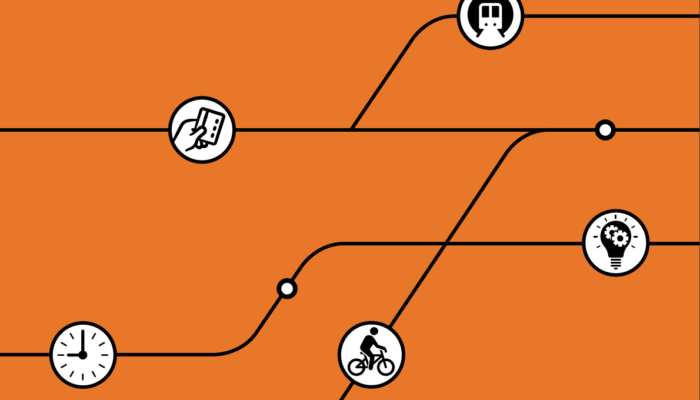
The effect of Covid-19 on transport has been seismic, but as the UK begins the process of recovery, the need for sustainable transport has only strengthened. The Government’s support during the crisis has sustained the sector so far, but the planning, design, scope, scale, funding and management of transport all need to be explored as we move towards a new normal.
In our new report, Covid-19 Recovery: Renewing the Transport System we look at how to transform the transport system to facilitate economic growth, meet legal obligations around carbon emissions and air quality, and tackle social exclusion. In it we call for a world-leading public transport network with improved connectivity; 100 per cent zero-emission road transport and railway; permanent improvements to sustain greater levels of walking and cycling; and changes to the way transport is paid for, including new means to raise revenue.
Our report found that by focusing its financial support and policy improvements on public transport, walking and cycling, the Government can transform our transport system in a way that supports a green, transport-led economic recovery.
At a local level, the report calls on local authorities to permanently reshape local transport networks around active travel, shared and public transport, and for central government funding to be linked to this ambition. Local authorities and bus operators need to work together to replan bus provision, with better integrated, multi-modal networks so that services work better for the communities they serve.
When it comes to rail services, we don’t want to see a return to business as usual with the previous rail franchise system, which wasn’t fit for purpose. There should be a new system that places a greater emphasis on leisure, as well as commuter travel, with city regions able to control rail services in their area.
In order to lock in the environmental and health gains from reduced carbon emissions and improved air quality during lock down, we need to accelerate the shift to 100 per cent zero-emission road and rail travel. All buses should be zero emission, which would support the growth of a hydrogen fuelled heavy fleet sector in the UK, and there need to be incentives to encourage the shift to electric vans for deliveries and fleet. We need a rolling programme of rail electrification and to prioritise infrastructure that supports sustainable transport, such as rail reopenings, bus priority and digital systems.
Finally, we must re-examine the way transport is funded. We need new sources of raising revenue, such as workplace parking levies and road use charges, to support the shift to sustainable transport. From the passenger point of view, reforms to fares, fare structures and ticketing should be prioritised to address the perception that public transport provides poor value for money. Something the Government could do immediately on this is to cancel January 2021’s rail fare increase, which will be confirmed next month with the announcement of July’s inflation rate. The rise is counter-productive to encouraging passengers back and to limiting the cost of people getting into work.
In the next weeks and months as people are encouraged to travel more, the Government must get a clear message out that public transport should be the first choice for most journeys where possible, not just to get the country physically and financially moving again, but to lock in the environmental benefits observed during lockdown.
As we begin the long road to recovery, we must seize the opportunity to develop a more sustainable transport system that is truly fit for the future.
About the Author
This post was written by Darren Shirley. Chief Executive, Campaign for Better Transport
